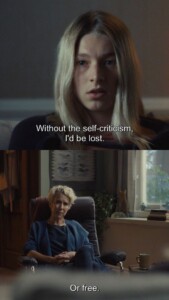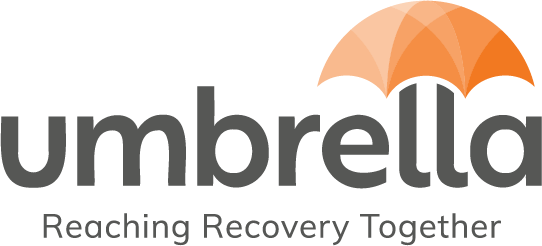October 19th to the 25th is Invisible Disability Awareness Week, first established in 2024 by the Individual Disability Association*. Along with the Hidden Disabilities Sunflower*, this is a week that shines a light on disabilities that we cannot see. A federal study back in 2022 found that 8 million Canadians suffer a disorder that affects their quality of life. Of those disorders, approximately 80% are invisible.
Obsessive Compulsive Disorder (OCD), Borderline Personality Disorder (BPD), Post-Traumatic Stress Disorder (PTSD), and Chronic Pain are all examples. As is substance use disorder.
We are the Umbrella Society for Addictions AND Mental Health because substance use and addiction is impacted by, and impacts mental health. We cannot ignore this type of support, and we’re grateful to have 2 passionate counsellors, and 2 talented practicum counsellors in house to serve those in recovery, and those affected by it.
Practicum Counselling students come to Umbrella to apply their skills to the addiction counselling field, and complete their masters degrees. They are supervised by our most senior clinical counsellor, and they’re typically with us for 8 months. In that amount of time, they work wonders. They simultaneously introduce themselves and meet existing clients where they’re at. They make themselves available to facilitate sessions in other Umbrella groups. They shift around their lunch breaks if a client is in distress. They are skilled, compassionate, and hard-working, and we happen to have picked the brain of one of them…
How many of those that you counsel with addiction issues also have concurrent mental health challenges?
It seems to me that most of the clients I am engaged with for substance use counselling have mental health challenges. Many have disclosed struggles with depression, anxiety, ADHD and other conditions. Some are diagnosed and some are not but many connect their substance using as a form of “self-medication” that they use to help them cope with their distressing symptoms.
Has your approach to counselling adapted to those in recovery?
My approach with those in recovery is adapted to meet the client where they are at in their journey. For a lot of people in early recovery, for the first time in their lives they are starting to process some of the emotions and experiences that they were numbing out with substances, so supporting them with strategies for healthy coping is essential. For others in longer term recovery, they may be seeking support to maintain the positive changes and continue their journey of personal growth. I try and determine what their goals are for counselling and go from there.
What does recovery mean to you?
Recovery to me means seeking self-awareness, courageously facing obstacles and challenges with self-compassion and integrity, and being accountable for our actions. It’s a lifelong journey and it’s not a straight line. It’s the hard work of learning to accept life on life’s terms and eventually having gratitude for the lessons and growth that hardship brings. It’s about embracing joy when it comes our way and letting happiness in when it knocks at the door.
 Are there any counselling methods that you recommend to clients at home who cannot see someone immediately?
Are there any counselling methods that you recommend to clients at home who cannot see someone immediately?
Reach out to someone. Anyone. It doesn’t really matter who. Just go for a coffee. The act of reaching out and connecting to other people is an antidote for isolation and loneliness. Get your heart rate up- endorphins are our bodies natural painkillers and mood lifters. Practice self-compassion- pay attention to your self-talk and try and shift it to something positive or at least neutral. You are the one that has to live inside your own head- make it a friendly place.
How do you yourself prevent burnout at the end of your counselling day?
I try and practice what I preach – I spend time with loved ones, I exercise, I count my blessings. If I am protective of my well-being and practice good boundaries, I don’t feel burnt out at the end of the day, I feel fulfilled. If I am feeling exhausted or emotionally spent, it’s a good signal to me to recalibrate.
Thank you for all that you do,
Umbrella
